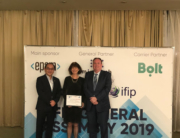The 16th IFIP Human Choice and Computers (HCC) Conference has issued a Call for Papers for its 2024 event, scheduled for next September in Thailand.
To be held at Dusit Thani Laguna, Phuket, Thailand from 8-10 September 2024, HCC16 will take the theme of, “Humans, Technological Innovations and Artificial Intelligence: Opportunities and Consequences”.
In recent months, we have seen the meteoric rise of Generative Artificial Intelligence (generally known as AI) tools like ChatGPT, ChatSonic, LaMDA, Neeva AI, DragonFly, etc. As we claim to move towards a more human-centric Industry 5.0, these and other technological innovations are challenging many of the relationships and choices that exist between humans and computers. These challenges have been documented extensively not only in the popular press, but also in academia. They exist at the juncture of human needs on the one hand, and technological and economic considerations on the other.
Some scholars and pundits are profoundly negative in their evaluations of AI technologies, suggesting that these tools will upend many aspects of the status quo in any domain where human creativity dominates, notably education, journalism, research, governance and crime. Others, perhaps those with a Machiavellian inclination, are quick to see the advantages associated with the new technology and argue that developments and innovations of this kind cannot simply be stopped by fiat. Indeed, although they may have the potential to eliminate creative work, they are themselves the products of creative and fertile imaginations. Unsurprisingly, new tools (themselves premised on AI) that are claimed to detect AI-created materials have also emerged, perhaps initiating a ‘war’ between the two sides.
What we can expect is that just as the new technology may solve some problems, it may exacerbate others. For instance, as we noted in the call for papers for the previous HCC15 conference, the encroaching influence, of machine learning based systems, that can embed the biases inherent in the data they have learnt from, threatens to entrench the societal problems of the past, rather than redress them. A wide range of ethical issues are certainly associated with the new technology, which we suggest will prove to offer a cornucopia of new research opportunities.
Since its inception in 1974, the Human Choice and Computers (HCC) conference series has consistently fostered innovative thinking about the interfaces between society and technology. HCC16 in 2024 will focus on “Humans, Technological Innovations and Artificial Intelligence: Opportunities and Consequences” and welcomes inputs from members of academia and research, civic society, computing associations, industry, and the IT professions on the following (and related) themes:
- Ethical and legal issues for generative AI technologies
- Social accountability and responsibility for computing and data utilization
- The daily life applications of new intelligent technologies
- How did we get here? Precedents, and lessons from the past
- Personal autonomy in information systems: where is the human in our models?
- Culture and technology: Can we shape a more human-centric computing environment?
- Personal freedom and in the real world and the metaverse
- How can new technological innovations spur genuine environmental impact?
- AI for Development: What are the potential application areas?
- How will AI and innovative technologies take or change our jobs?
- What is the future of business organizations in an AI-powered environment?
- Global or local? How are the lived experiences of marginalised and dispossessed citizens in developing countries affected by new technological innovations?
- New technology, generative AI and fun! Working, playing, entertaining and relaxing in our working and private digital lives.
For more information, please visit the HCC16 website.





